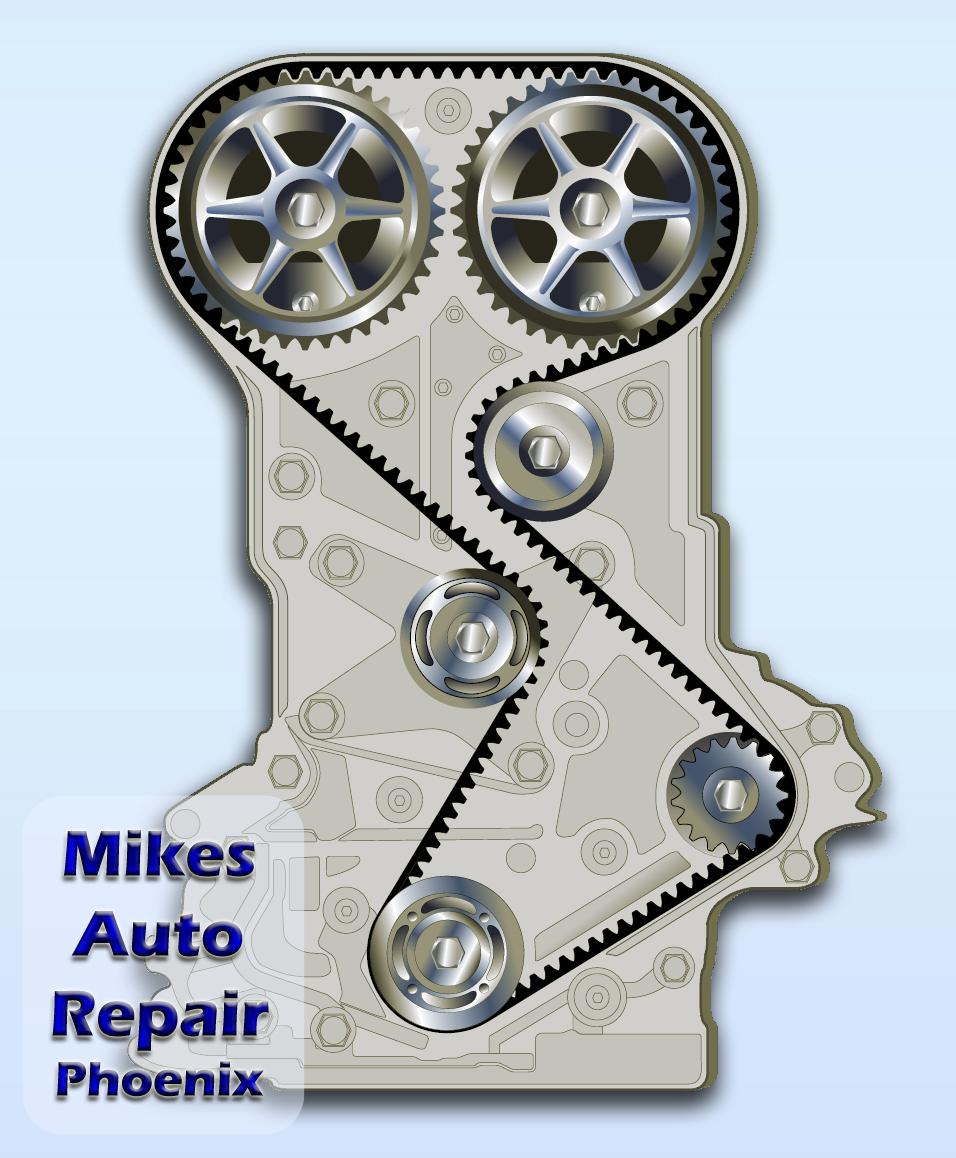Mikes Auto Repair is here to help with your Timing Belt! It can be quite easy to forget that most cars need a timing belt replacement every sixty to ninety-thousand miles. So if your loyal 4-door is behaving a little strangely, a worn out or excessively old timing belt may be to blame.
In technical terms, the timing belt controls the frequency at which the engine valves open and close. In some cases, the timing belt will also help operate the water and oil pumps. This may help you imagine what will happen to your car should the belt start skipping "teeth". Because of its design and construction, a timing belt will start skipping teeth rather than snap. This is because there are High-Tensile fibers (like Kevlar) running the length of the belt.  These fibers keep the belt strong long after a normal piece of rubber would wear away. Because it is quite rare that a timing belt will just snap, it is important to keep an eye out for a few tell-tale signs that your belt is worn out.
These fibers keep the belt strong long after a normal piece of rubber would wear away. Because it is quite rare that a timing belt will just snap, it is important to keep an eye out for a few tell-tale signs that your belt is worn out.
Uncommon amounts of exhaust
Difficulty getting the engine started
Your car shakes, or vibrates.
Your engine shuts down while driving, or starts abnormally fast
Paying attention to these signs can stop you from paying more than you need to for repairs. Allowing your timing belt to operate in disrepair can result in a breakdown nothing less than catastrophic, possibly requiring a complete rebuild of your motor. We at Mikes Auto Repair urge you consider the health and longevity of your engine. We know that no one likes to hear that their car needs a weekend stay at the mechanics for major repairs.
Unfortunately to replace a timing belt is not the cheapest of all repairs, but it is far less expensive than the alternative. Let Mikes Auto Repair save you from an automotive nightmare by performing this important maintenance step. The timing belt is an integral part of your automobile; it ensures the smooth operation of a few components of the internal combustion engine. Furthermore, it’s not as simple as just slapping a new belt into place. The belt tension must be precisely set. If the belt is too loose it will "flop", making excessive noise and wear down the belt way before its time. Too tight and it will force your engine to work harder and can cause a "whining" noise.
Some technicians may recommend that you replace the water pump during a timing belt job even if there is nothing wrong with it. This is because 90% of the labor to change the water pump has already been done with the timing belt job and some technicians consider it good insurance to replace the pump at this time. The mechanic also inspects components inside the timing cover and, if necessary, replaces oil seals, tensioners, and idler bearings. But because we understand that no one likes to see extra’s on the bill, we will always ask permission to perform any maintenance you may require
At your request, we may also be able to improve the performance of your vehicle with an aftermarket timing belt. Many of the standard timing belts tend to stretch when your car reaches high RPM’s, higher quality belts will retain their tension and maintain proper timing even when your car is pushing the limits of its performance.
